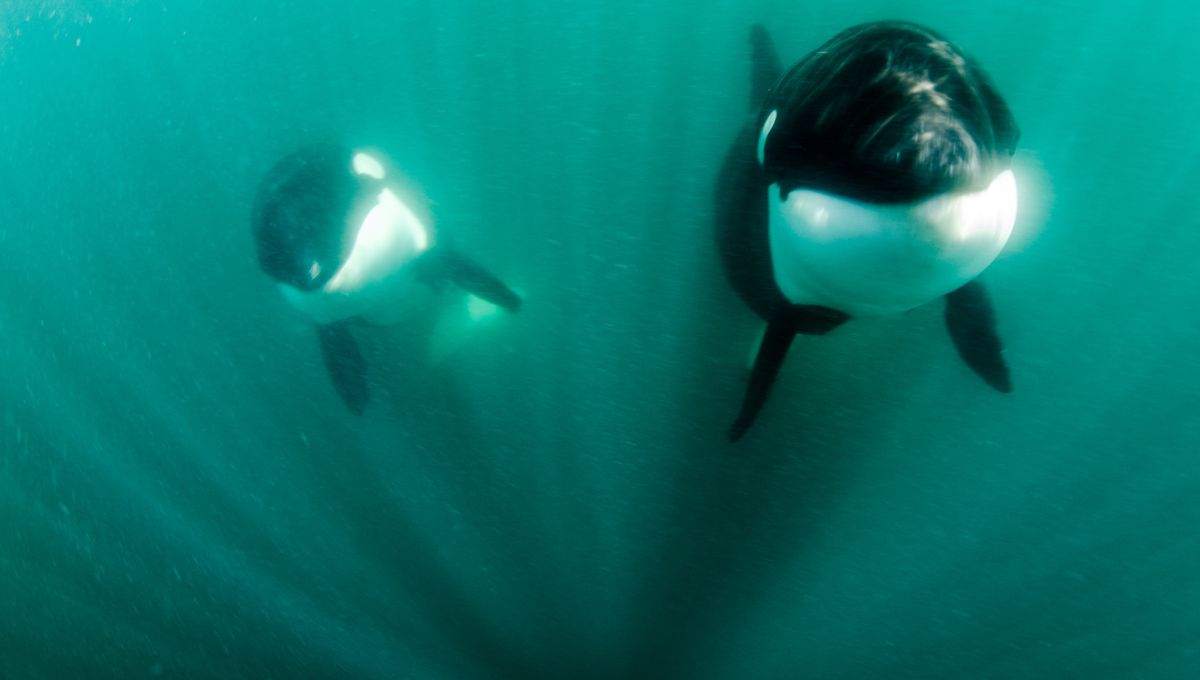
Port and Starboard, the now (in)famous orca pair who were previously recorded hunting and killing great white sharks, have recently killed at least 17 sharks in a single day.
The orcas, named for the directions in which their dorsal fins flop, have been known to feed on various species of sharks in South Africa. In this latest hunt, they turned their attention to broad nose sevengill sharks near Pearly Beach, Gansbaai.
These ancient-looking sharks are named for having seven gill slits rather than the typical five slits that are common to other shark species. They typically feed on rays, smaller sharks, and seals and have on rare occasions been known to attack humans. However, they are apparently generally relaxed around divers and are said to be ideal sharks for photographing and to swim with.
“We observed the two orcas repeatedly diving down in a small area for almost two hours before they departed offshore”, said Ralph Watson, a researcher with Marine Dynamics Conservation Trust in South Africa, in a statement.
Some days later, the remains of 11 sevengill sharks were retrieved from the same beach by Watson and his team after storms and surge conditions brought them to shore. According to Alison Towner, PhD candidate at Rhoades University and lead researcher on orcas hunting sharks in Gansbaai, “each seven-gill shark was torn open and missing its liver; they were all females measuring between 1.6-2.3 meters [5.2-7.5 feet] and had similar injuries to those killed in False Bay by the same orca pair.”
“This is the largest amount of sharks these orcas have killed in this area in one sitting,” Towner added. “There could well be more that didn’t wash out.”
Before 2015, great white sharks were relatively common in the region, especially in False Bay, where they were famous for breaching the water when attacking seals from below. Yet their numbers have dwindled since Port and Starboard started hunting there.
Orcas have been known to feed on great whites in other places too, especially in California and South Australia. In 2015, cage divers off the Neptune Islands in South Australia witnessed a pod of orcas attacking a shark in view of the boat.
In most cases, the orcas move on from a region once the population of sharks has declined and the pickings become slim. The situation in South Africa is notable as it is one of the first places where the bodies of the dead sharks have washed up on shore where they can be examined.
It is also the first place where such attacks have been recorded by drone footage, which itself could be evidence that these orcas are teaching others how to hunt these apex predators.
Source Link: Infamous Orca Duo Kill At Least 17 Sharks In Feeding Frenzy